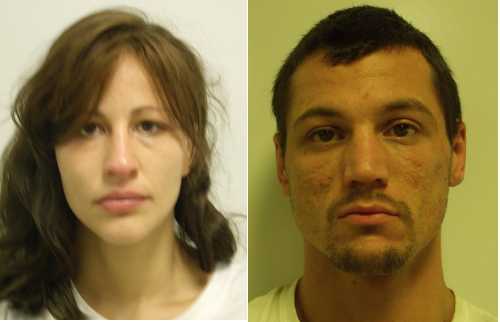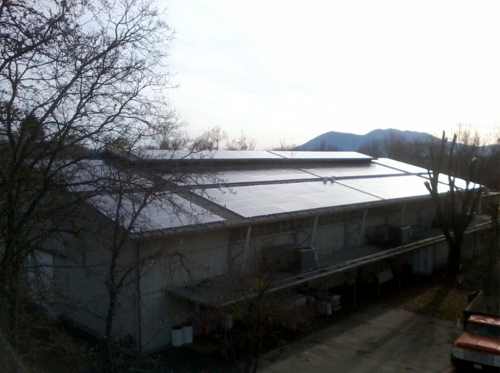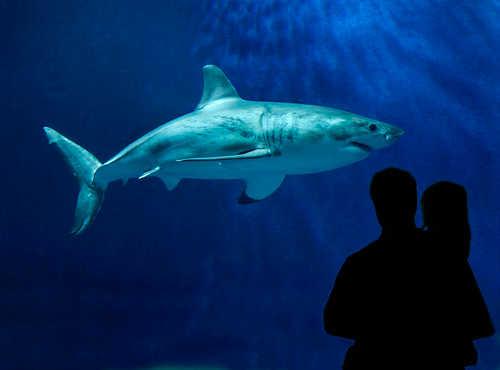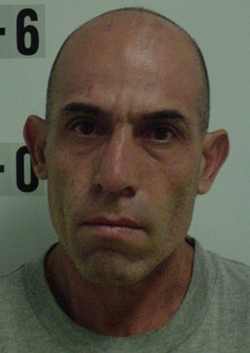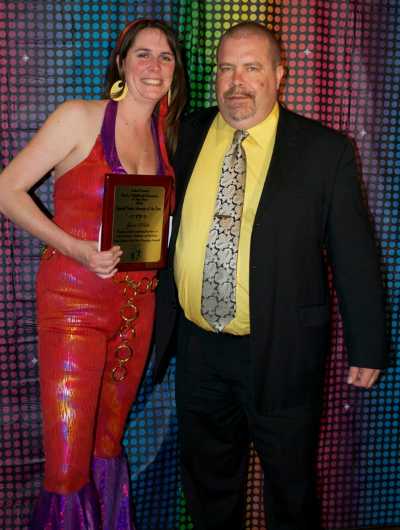LAKEPORT, Calif. – Issues surrounding the trial date for three men charged in a motorcycle gang fight and their efforts to subpoena the county sheriff for his part in gathering evidence in the case went before a judge this week.
The case involves three Sonoma County Hells Angel Chapter members who last March were ordered to stand trial for allegedly attacking club rivals during a 2011 tattoo convention at Konocti Vista Casino.
Josh Johnson, Nicolas Carrillo and Timothy Bianchi allegedly fought with Michael Burns, a validated Vagos motorcycle gang member, and Kristopher Perkin on June 4, 2011. Another Hells Angel member who was alleged to have been involved, David Dabbs, was not located by law enforcement.
Johnson, Carrillo and Bianchi are charged with felony participation in a criminal street gang, and misdemeanor counts of disturbing the peace and battery. In addition, Bianchi is charged with felony assault with a deadly weapon other than a firearm, and Johnson and Carrillo each face a second misdemeanor battery count.
The three men were in court Tuesday morning for motion hearings in the case.
Michael Clough, Carrillo's attorney, was on hand, as was Bianchi's attorney, Jai Gohel, who made a special appearance on behalf of Johnson as well.
In addition to prosecutor Art Grothe, District Attorney Don Anderson, Deputy County Counsel Lloyd Guintivano, county Human Resources Director Kathy Ferguson and a California Department of Justice attorney were present for the hearing.
The additional presence of county officials was in response to Clough's Pitchess motion to get information from the personnel files of Sheriff Frank Rivero, who had testified during the March 2012 preliminary hearing of the three men, as well as the records of Deputy Gary Frace.
During that March 2012 preliminary hearing, Rivero testified that he had retrieved a surveillance video recording from Konocti Vista Casino because he had a working relationship with the tribal chair due to a crash that had killed a child. However, that fatal crash had taken place nearly two months after the fight and Rivero's efforts to obtain the recording.
Rivero also had testified that no other sheriff's personnel had seen the video recording at the time he retrieved it. However, Frace's testimony contradicted Rivero; Frace said he had seen the video before Rivero received a copy of it from the casino.
Court documents show that Clough also has filed a Pitchess motion to have the court examine Frace's personnel documents.
“To be clear, defendant Carrillo is not alleging misconduct on the part of Deputy Frace,” Clough wrote in one of his filings. Rather, he believes the records will show that Rivero took Frace off of the case and filed a complaint against him, which “supports the defense’s theory that the investigation of the charges against defendant Carrillo was infected and corrupted by the actions of Sheriff Rivero.”
Judge Richard Martin, who presided over the Tuesday court appearance, said it was his impression that the motion hearings in which Clough is seeking Rivero's personnel information would take considerably more than one hour, and as such he needed to reset it.
“There are multiple issues here,” Clough said, adding that he thought some of them could be resolved that morning.
For Clough, one of the issues was whether or not Rivero was to be a witness at the trial, as he was at the preliminary hearing.
The District Attorney's Office has indicated that Rivero is not a material witness and they don't plan to call him to testify. Clough said he's never been involved with a case in which a witness who testified in the preliminary hearing was, months later, not included as a trial witness.
“That, in itself, creates a strong presumption of materiality,” he said of Rivero's testimony at the preliminary hearing.
Based on Clough's case filings, some of the information he's seeking from the District Attorney's Office is material that must be disclosed under the 1963 US Supreme Court Case Brady v. Maryland, which requires the government to disclose any potentially exculpatory evidence to defendants in criminal cases.
In Rivero's case, he has been the subject of a lengthy Brady inquiry by Anderson's office due to allegations that, while working as a deputy in February 2008, he shot at a man holding a can of pepper spray and then lied to sheriff's investigators about his actions.
If Anderson places Rivero on a “Brady” list, his testimony in any criminal case would then be in question.
With the District Attorney's Office not planning on calling Rivero as a material witness, the agency said in responses to Clough's motions that it has no Brady disclosure obligations for Rivero in the Hells Angels case.
Clough, however, had written in his filings that Rivero must testify since he acquired the video recording, a key piece of evidence. He's pursuing the Brady disclosures because he believes that Rivero's confidential files “includes evidence of alleged dishonesty” relating to the February 2008 shooting.
On Tuesday Clough told the court he's been asking for certain discovery materials for a year and a half and it's unlikely that, once he gets them, he will be ready to proceed to trial only a week later. He believed his only option was a time waiver and to push the trial back two to three months.
Clough also is seeking information from the Western States Information Network, which is a federally funded regional information sharing system that provides criminal intelligence information and case and event de-confliction to law enforcement investigations being conducted in Alaska, California, Hawaii, Oregon and Washington, according to the California Attorney General's Web site.
Martin said there were complicated issues with Clough's information requests for both the network and Rivero, and he expected both would take time to work through.
The judge told the group of defendants and lawyers that the only way the case ultimately will be settled is for it to go before 12 jurors. He said they could have all kinds of meetings until then but everyone was entrenched.
It was agreed in court on Tuesday that the trial will be set for May 22, with the motion hearings to be rescheduled for Feb. 27-28.
Clough said he had issued four other subpoenas for people who had not shown up to court, including Rivero.
On Jan. 4, Clough served a subpoena for Rivero's appearance and for his personnel material on Lt. Steve Brooks at the Lake County Sheriff's Office. However, Clough said he had received no response from Rivero.
He also had served subpoenas at the Sonoma County Sheriff's Office and the Santa Rosa Police Department, which also had not responded. Both agencies had been involved in the investigation and assisting with apprehending the men after the fight.
The District Attorney's Office also had refused to give Clough the physical address of gang expert Jorge Gil-Blanco, who he wanted to interview. “I think that is absolutely mandated by the law,” Clough said of his right to the contact information.
Clough said he had tried to serve a subpoena on Gil-Blanco at the San Mateo County Sheriff's Office, but they would not accept service on his behalf.
Grothe said he had spoken to an official at the Santa Rosa Police Department and they had indicated that they had complied in part with the subpoena but had denied another part of the subpoena due to some legal concerns.
Grothe said they had provided Clough with an address and that Gil-Blanco had accepted services through the District Attorney's Office.
He said for Clough to ask for the home address of an expert on the Hells Angels strains credibility.
Clough, in turn, argued that no case law supported him being given only a post office box address. He said it was understandable that Gil-Blanco would not want him to have his home address, and he was only seeking a physical location where he could make contact.
Grothe said he had communicated to Gil-Blanco Clough's desire to interview him. “He declined that.”
Martin said there are procedures in place for the district attorney to make Gil-Blanco available, but whether he wants to speak to the defense is up to him.
Clough, who works in the Bay Area, asked to have Gil-Blanco made available at a San Mateo address. Martin said Clough and Grothe could work it out.
The matter about Rivero not obeying the order to show up to court then came up.
“His counsel is here so I assume something is going on,” said Martin in reference to Guintivano.
Guintivano, however, said the County Counsel's Office had not received any subpoena information relating to Rivero in the case.
Martin asked Clough if he had proof of service. Clough said he personally served the documents at the sheriff's office.
Martin suggested Clough use an investigator to serve the subpoena to Rivero.
The judge then said it may come down to issuing an arrest warrant for the sheriff if he doesn't comply with the subpoena, which Martin said he had the power to do.
“I will only do it if the evidence absolutely supports it,” Martin added.
Clough said that under normal circumstances he would never subpoena a sheriff.
Email Elizabeth Larson at [email protected] . Follow her on Twitter, @ERLarson, or Lake County News, @LakeCoNews.
